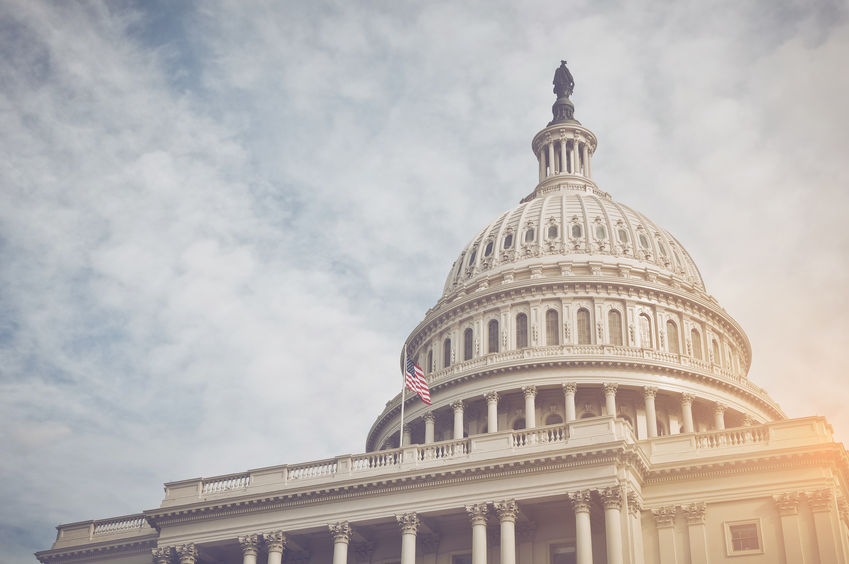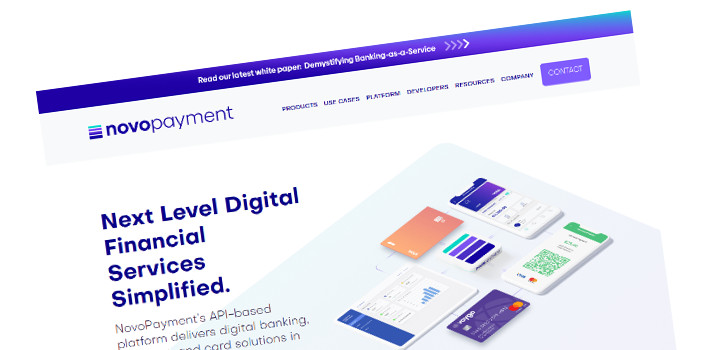The Real Small Business Funding Demand Has Yet to Kick In
May 26, 2022 Now that small and medium sized businesses received crucial PPP and EIDL funding during the COVID-19 pandemic, they have become more familiar with other options to obtain capital.
Now that small and medium sized businesses received crucial PPP and EIDL funding during the COVID-19 pandemic, they have become more familiar with other options to obtain capital.
“…they’re learning that they can borrow money based on their revenue, not based on their credit and assets,” stated Sean Feighan, Co-founder and President of Cash Buoy. Feighan explained that the exercise of obtaining capital during Covid to stay in business created or further developed an appetite for small businesses to borrow money in general.
As these businesses are still utilizing the remaining government aid, the real demand has not truly begun, according to Dylan J Howell, CEO of Liquidibee. “…we have yet to see the real big demand that’s about to kick in, in my opinion, over the next six to twelve months, I believe that a lot more demand will come in,” Howell said. “A lot of companies received a good injection of government stimulus. And they’ve enjoyed that over the last year, year and a half. And as that comes to an end, companies are always looking for additional capital, whether it be to grow or foster future growth of their company.”
“I think we’re beginning now to see a new phase within small business,” said Avi Wernick, VP of Partnerships at FinTap. Because of the money that’s still lingering from the stimulus efforts, he thinks that alternative finance companies will soon see more demand in the coming months. But at the same time, those finance companies will have to determine if they’re even a good fit for their products. “I think some businesses will be more adversely affected. I think it depends a lot on the nature of the business owners, you know there are better business owners out there that are able to manage [their] finances more responsibly, and there are others that are kind of just more reactive.”
Erez Stamler, CEO and Managing Director of Fresh Funding, echoed a similar sentiment. He said that increased risk factors of a business coming out of Covid can make it harder to get them approved. Besides, a business now predisposed to forgivable funding or ultra long terms at very low interest may not necessarily demand other products in the market.
“So you will see demand, but you might not see increased amount of views or volume of deals, because you can’t replace SBA loans with MCA,” Stamler said.
Ready Capital Small Loan Closings Reach New Growth with LenderAI
May 16, 2022 Last week, Ready Capital Corporation announced another company record for small 7(a) loan closings in the $10,000 to $350,000 range. Originating 55 such loans in April, the company attributed its success to the use of LenderAI by iBusiness Funding LLC, a subsidiary of Ready Capital.
Last week, Ready Capital Corporation announced another company record for small 7(a) loan closings in the $10,000 to $350,000 range. Originating 55 such loans in April, the company attributed its success to the use of LenderAI by iBusiness Funding LLC, a subsidiary of Ready Capital.
LenderAI is a technology platform comprised with an easy-to-use suite of tools, according to the company. iBusiness Funding says their “approach to funding is based on automation, backed up by hyper-current and relevant data.” The LenderAI self service lending origination software includes no implementation fees, free instant setup, digital borrower application, digital documentation, all while being E-Train automated and SOC II compliant.
“Our core mission when expanding the SBA small loan program was to help the smallest businesses, making affordable lending available to support economic development and underserved communities,” said Justin Levy, President of Ready Capital Small Balance Lending. “LenderAI has enabled our 7(a) small loan products. The technology platform allows us to process loans for smaller businesses, who have fewer capital options, by digitizing their documents and inputs, giving them access to capital while allowing them to stay focused on their businesses.”
With iBusiness Funding’s LenderAI system, Ready Capital’s Small Loan Lending program funding has increased from 84 loans in 2021 to over 150 loans in the first four months of this year. iBusiness focuses on specific criteria for its borrowers including likelihood of success, engagement, and background/credit.
“We believe our LenderAI technology has drastically improved document collection and processing, streamlining both the borrower and lender experience,” stated Katy Forte Seybold, iBusiness Funding Chief of Staff and Head of Strategy, in a press release. “There’s little risk to trying it out, with bank level security, flexible core platform integrations and, for a limited time, it’s free to try with no implementation fees.”
Large Fintech Companies Helping to Normalize Revenue Based Financing
May 6, 2022 With business increasing for wide-reaching financial technology companies like Square, Paypal, and Shopify, this has brought more attention to revenue-based financing products like the ones they offer. Henry Abenaim, Founder and CEO of Fundingo, said that it brings more businesses to the table.
With business increasing for wide-reaching financial technology companies like Square, Paypal, and Shopify, this has brought more attention to revenue-based financing products like the ones they offer. Henry Abenaim, Founder and CEO of Fundingo, said that it brings more businesses to the table.
“…you sometimes think it’s a small world or small group of merchants, and you really come to realize that it’s huge,” he told deBanked. “And the more they’re serviced, the more they need, the more they grow. So it just feels like there’s just more awareness of the product, and then more merchants that are going to come in demand and ask for it, as well as these bigger players are always going to service only a subset of the businesses.”
At the same time, a greater public awareness of options could tighten margins for certain funding providers. “I think it’s going to make the merchants that are way more bankable… get lower price deals, so it’s going to hurt the margins, it’s going to hurt the profits,” Abenaim commented.
John Bulnes, Vice President of Business Development at Fenix Capital Funding, expressed how it is not yet determined what kind of effect the larger mainstream companies will have on the industry. “I do think it’s something that the larger first position MCA companies may feel the effects of first, because they’re going to be competing more or so with taking away clients from those companies first, as opposed to the companies that are smaller that are doing shorter term deals.”
As these big companies operate with larger capital bases, it may indeed become more difficult for smaller companies to compete.
“… it’s going to be something that’s going to constantly adapt and fluctuate as time goes, but I do see it as an expanding industry… it’s kind of a sign that when you see more commercials and we see these bigger companies jumping into the space, that it is something that’s going to continue to grow,” said Bulnes.
And commercials and ads are definitely increasing. One of the largest online small business lenders in the country was asked about their TV and radio campaigns during their recent quarterly earnings call.
“We’ve definitely been ramping [commercials up] hopefully with a little bit more diligence than OnDeck was running ads three or four years ago,” said David Fisher, CEO of Enova. “But we’ve definitely jump back into kind of broader base advertising in that business and it’s been working really well.”
CUNA to Congress: No More Direct Lending From the SBA, Please
April 28, 2022 On Tuesday the Credit Union National Association wrote letters to the House and Senate Small Business Committees stating that it is in the best interest for small business entrepreneurs to partner with a financial service provider, rather than the Small Business Administration directly. CUNA addressed their role in supporting emerging businesses and argued for policies that would block the SBA from serving as a direct lender. The letters will be brought forward at an oversight hearing to examine the SBA on Wednesday.
On Tuesday the Credit Union National Association wrote letters to the House and Senate Small Business Committees stating that it is in the best interest for small business entrepreneurs to partner with a financial service provider, rather than the Small Business Administration directly. CUNA addressed their role in supporting emerging businesses and argued for policies that would block the SBA from serving as a direct lender. The letters will be brought forward at an oversight hearing to examine the SBA on Wednesday.
CUNA stated, “… we strongly support legislation – such as S. 3382 and H.R. 6037 – that would prohibit the SBA from directly making loans under the 7(a) Loan Program and oppose any efforts in the FY 2023 Budget to fund a direct lending program.”
As the SBA became a direct lender during the COVID-19 pandemic, relationships between small businesses and financial service providers have not been able to form.
“… when working with local lenders, small businesses are likely to benefit from guidance and experience from a lender with a stake in helping the borrowing business succeed. By becoming a direct lender to small businesses, the SBA is likely to harm local financial institutions’ relationships with businesses and possibly hamper these businesses from establishing important banking relationships that can only help their business survive and flourish.”
At the small business committee hearing, Congressman Stauber questioned SBA Administrator Guzman on how the Biden administration is helping both the middle class and small businesses with inflation.
Guzman discussed how the President is taking action on energy costs, “he has made available a million barrels a day, to try to control some of the gas costs which we know are affecting our small businesses…”
Stauber responded, “…the strategic petroleum reserve really should be held for national emergencies not failed policies…” He further mentioned his concerns as he believes the administration is not acting quick enough as inflationary costs are rising for small businesses.
Lendistry and Obtaining a Small Business Lending Company License
April 26, 2022
On April 19th B.S.D. Capital, Inc. dba Lendistry (“Lendistry”) announced that Lendistry SBLC LLC, its wholly-owned subsidiary, was granted a Small Business Lending Company license from the US Small Business Administration. With the license, Lendistry SBLC will now be able to offer SBA 7(a) loans of up to $5 million nationwide.
SBLCs are regulated, supervised and examined by the SBA, except for the small portion of SBLCs defined as Other Regulated SBLCs. As defined in 13 CFR 120.10, SBLCs are non-depository lending institutions that are authorized only to make loans pursuant to section 7(a) of the SBA and loans to Intermediaries in SBA’s Microloan program. Lendistry is now among one of only 14 non-depository lending institutions nationwide to hold a spot of this kind and is the only African American-led lender to hold an SBLC license. The company says it’s even “more rare to be an SBLC licensee that can also offer loans under other community development programs.”
“We believe there’s a huge demand there for our existing clients and some small businesses that are already familiar with Lendistry, but also those who are not familiar with it yet, but require or need access to capital that can’t get it from a traditional lender, we believe that we will be able to serve them during this pandemic time,” said Kerrington V. Eubanks, SVP, Strategic Partnerships at Lendistry in a call with deBanked.
The company says it has recently seen an uptick in interest for loans and lending products as small businesses move forward post-pandemic. Lendistry says it will work to do its part in the recovery. “By supporting them with our lending products, by supporting different partners with leveraging our platform as a service,” Eubanks explained.
Lendistry has provided just over 8.5 billion in capital deployed to about 570,000 businesses across the country. The company’s goal is to double their current number in capital.
NovoPayment, Latina-founded BaaS Plans to Expand
April 21, 2022 Novopayment has raised $19 million in Series A financing, led by Fuel Venture Capital and IDC Ventures. The company, which offers digital banking, payment, and card solutions, is planning to grow and expand within current and further US markets while focusing on countries in Latin America and the Caribbean.
Novopayment has raised $19 million in Series A financing, led by Fuel Venture Capital and IDC Ventures. The company, which offers digital banking, payment, and card solutions, is planning to grow and expand within current and further US markets while focusing on countries in Latin America and the Caribbean.
CEO and Co-founder Anabel Perez stated, “We define a digital payment as the simple transfer of value from one payment account to another using a digital service such as a mobile device, POS, or computer.”
With the new funding, NovoPayment plans to continue increasing capabilities, introduce new features and functionalities, heighten security, and capitalize on US market opportunities. To accelerate their expansion of current offices in Mexico, Colombia, Peru, Ecuador, and headquarters in Miami, they are adding over 100 new engineers, business development, and product experts to their team. Austin and San Francisco are the first two spots where the branching out will begin.
“Austin and San Francisco are huge hubs for tech innovation and we want to expand there to ensure we attract the best talent for our operations,” Perez discussed. “As we grow in those markets, we’ll assess if we need more boots on the ground in additional states.”
NovoPayment currently holds a strong placement in the LAC region and works with several US clients and partners. This places the company in the right position to broaden in these markets they already have successful track records in.
“Based on our ongoing discussions with clients, we have special insight into the challenges and technology gaps these markets face, and realize the potential to further connect the Americas with a common banking infrastructure. We will be growing our product offerings to enable new data and money flow solutions to account for the increasingly globalized, cloud-based world of financial services,” Perez explained.
As Miami is the “Latin America capital of the US,” NovoPayment holds an advantage as a native of South Florida with the tech scene gravitating towards this region. Miami has served as a gateway to other markets.
“Unlike other companies that are now playing catch up and rushing to the LatAm market, we have a strong foothold and reputation in 14 markets across the Americas,” said Perez. “Establishing those relationships, and understanding the nuances of each market, requires regional expertise that takes time to build.”
The Sale of Recreational Cannabis Comes to New Jersey
April 20, 2022 It’s happening, on Thursday New Jersey will officially begin selling marijuana to adults. The results of the 2020 general election are finally making moves as New Jersey residents voted to legalize marijuana about 16 months ago. On Monday, the New Jersey Cannabis Regulatory Commission passed the approval to seven medical-marijuana companies to start selling their products for recreational purposes.
It’s happening, on Thursday New Jersey will officially begin selling marijuana to adults. The results of the 2020 general election are finally making moves as New Jersey residents voted to legalize marijuana about 16 months ago. On Monday, the New Jersey Cannabis Regulatory Commission passed the approval to seven medical-marijuana companies to start selling their products for recreational purposes.
Thirteen individual dispensaries will be open throughout the state, with many located only a half-hour from New York City. It is not yet determined which dispensaries will be open for business on April 21. New Jersey will become the second state on the East Coast to fully authorize the sale of cannabis to the full adult audience.
An official cannabis market is yet to exist in New York City despite cannabis cafes, THC infused fine-dining experiences and random marijuana trucks lurking along the streets. Last year, New York State legalized the recreational use of cannabis but licenses have not yet been awarded to any businesses.
For adults 21 and older it is legal to possess up to three ounces of cannabis and up to 24 grams of concentrated cannabis for personal use. It may be consumed in a private home or at a state-licensed on-site consumption site, which is coming soon. Where smoking tobacco is allowed, smoking and vaping cannabis is permitted. No one may smoke cannabis in outdoor dining areas at restaurants or in motor vehicles (even if they are parked), doing so can result in a civil summons and fine. Selling any amount of marijuana without a license or driving while under the influence or impaired is prohibited.
Small Business Finance Industry Mulls What’s in The Rearview, Is Optimistic For Rest of 2022
April 14, 2022 The small business finance industry is looking ahead to anticipated growth for the remainder of the year, despite new challenges ahead. With massive government aid fading in the rearview, some industry players now have had the time to consider what the impact of it was as they move onward into the future.
The small business finance industry is looking ahead to anticipated growth for the remainder of the year, despite new challenges ahead. With massive government aid fading in the rearview, some industry players now have had the time to consider what the impact of it was as they move onward into the future.
Bob Squiers of Meridian Leads expressed his view on the topic, “a lot of our customers, mostly the ISO shops, many of them converted and started selling and pitching the government programs. So in that sense it kind of helped keep those guys afloat, helped keep our business going. A lot of what we do in the marketing side, translated for those government programs. But then it did also squash the demand for the cash advance.”
In some cases, government funding has helped merchants pay off pre-existing obligations in a timely manner. Matthew Washington, founder and CEO of Moneywell GRP, noted, “An educated business owner is using the financing options available as they see fit for the timing. Someone that is waiting to get an SBA or an EIDL is more susceptible to take a bridge product to get them through that time gap,” he said. “As long as you’re working with the merchant and pushing out good products and you know what is on the rise, I think it has done nothing but help in some cases.”
Trucking became one of the number one fields that made up a large percentage of submissions during the pandemic, industry insiders say. However, with gas prices increasing, business with trucking could go down. Other businesses such as restaurants, where only a third received funding last year from the government, are desperate for funding.
“There’s tons of restaurants left that haven’t yet received their funding. So we could be seeing a lot of exposure in that industry,” stated Michael Yunatan of Specialty Capital. “But overall, I definitely do feel that we’ll be seeing an uptrend in our numbers across the board.”
“We definitely do think the industry is growing as a whole,” said Yunatan. “Even though we are a new player in the space we have been growing.”
Chad Otar, founder and CEO of Lending Valley, said, “We need to keep monitoring the interest rates that are coming up from the Federal Reserve, we need to make sure we’re not heading towards a recession, we need to make sure that we’re able to fully have the capital ready, in order to be able to deploy at a reasonable rate.”
Otar acclaimed the indirect benefit of large tech companies operating in the space with a competing product, arguing that the presence of PayPal and Amazon are helping to bring exposure to the industry overall.
“And now that Kabbage is back as well, since they partnered up with American Express, it’s gonna help us out to be able to push the product more into the mainstream,” said Otar. “So I believe there will be a growth in the industry.”






























